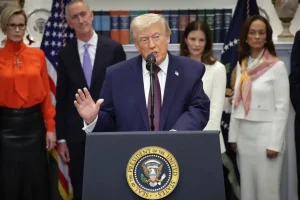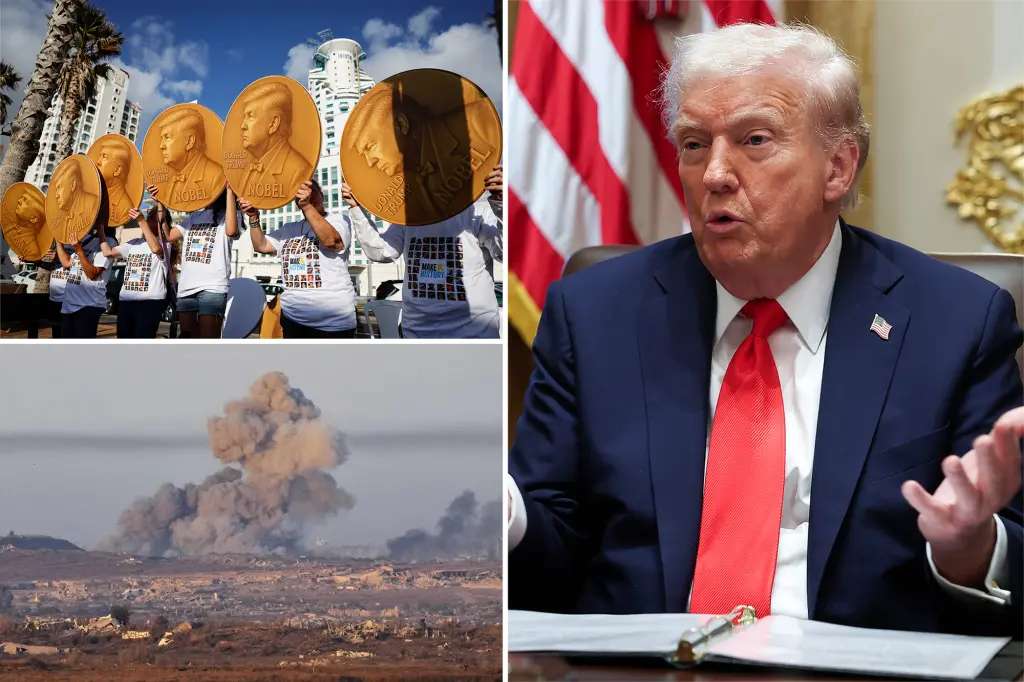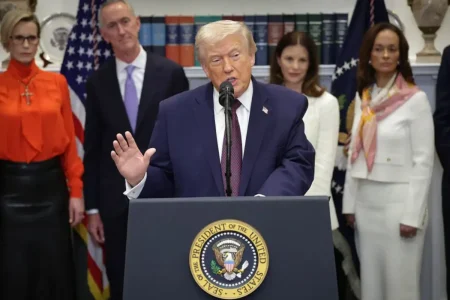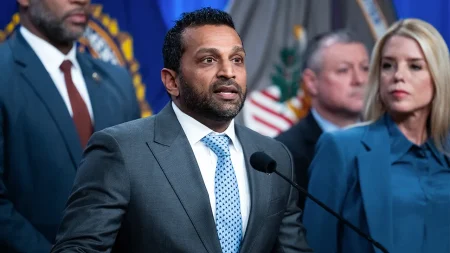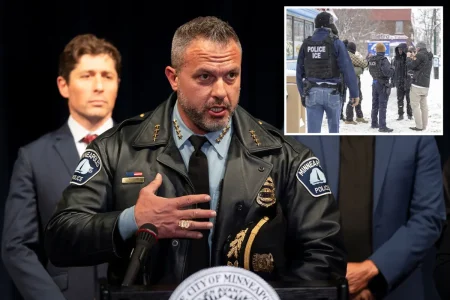Trump Misses Nobel Prize Due to Timing Despite Israel-Hamas Peace Deal
In a remarkable turn of events, President Donald Trump narrowly missed receiving this year’s Nobel Peace Prize despite his successful negotiation of a historic cease-fire agreement between Israel and Hamas that ended more than two years of devastating conflict. The timing was simply unfortunate—the five-member Norwegian Nobel Committee had already made its decision on Monday to award Venezuelan opposition leader María Corina Machado, just two days before Trump’s peace deal was finalized. This wasn’t a deliberate snub but rather an instance of diplomatic achievement occurring just after the selection process had concluded.
The impact of Trump’s peace efforts was immediately visible on the ground, with jubilant crowds filling the streets of both Tel Aviv and Gaza, many chanting Trump’s name and calling for him to receive the Nobel Prize. These scenes of celebration highlighted the significance of the agreement, which brought relief to populations that had endured prolonged suffering during the protracted conflict. Nobel Peace Prize Committee Chair Jørgen Watne Frydnes explained their process, noting: “We receive thousands and thousands of letters every year of people wanting to say what—for them—leads to peace,” and emphasized that decisions are based solely “on the work and will of Alfred Nobel,” made in a room adorned with portraits of previous laureates who exemplify “courage and integrity.”
Beyond the Israel-Hamas agreement, Trump has garnered significant praise during his second term for his diplomatic efforts to reduce tensions between Russia and Ukraine, a conflict that had threatened to escalate further. These peacekeeping initiatives represent part of a broader pattern of diplomatic engagement that has characterized his administration’s foreign policy approach. His supporters point to an impressive list of diplomatic achievements, including efforts to resolve long-standing conflicts between numerous nations: the Democratic Republic of Congo and Rwanda; Cambodia and Thailand; India and Pakistan; Serbia and Kosovo; Egypt and Ethiopia; and Azerbaijan and Armenia—all situations where Trump’s administration has worked to foster dialogue and reduce tensions.
The growing recognition of Trump’s peace initiatives was formalized when Representative Andy Barr (R-Ky.) nominated the president for the Nobel Prize on Thursday, writing that no “world leader has done more to advance peace and prosperity in the world than President Donald Trump.” This nomination came on the heels of the Israel-Hamas agreement and reflected the sentiment among many of Trump’s allies that his diplomatic accomplishments deserve the highest international recognition. A source close to the president indicated that while receiving the award this year would have been unexpected, there are hopes that next year’s prize might acknowledge his continued peace efforts, suggesting a forward-looking perspective within his administration regarding international recognition.
Critics of Trump’s Nobel Prize candidacy, however, point to several controversial actions that they believe undermine his peace credentials. These include the June bombing of Iranian nuclear facilities, his public musings about taking Greenland from Denmark, and his proposal to rename the Defense Department as the Department of War—all moves that critics argue reflect a more aggressive stance at odds with the peace prize’s ideals. These contrasting perspectives highlight the complex and often polarized assessments of Trump’s foreign policy approach, with supporters emphasizing concrete peace agreements and detractors focusing on more confrontational rhetoric and actions.
The Nobel Peace Prize has been awarded to four U.S. presidents throughout history: Theodore Roosevelt in 1906 for mediating the end of the Russo-Japanese War; Woodrow Wilson in 1920 for his work in establishing the League of Nations; Jimmy Carter in 2002 for his decades of efforts to find peaceful solutions to international conflicts; and Barack Obama controversially in 2009, early in his presidency. Whether Trump eventually joins this exclusive group remains to be seen, but his recent diplomatic breakthrough between Israel and Hamas has unquestionably strengthened his credentials in the realm of international peacemaking, regardless of when or whether formal recognition comes from the Nobel Committee. The scenes of celebration in both Israeli and Palestinian territories serve as immediate testament to the real-world impact of these diplomatic efforts, which have brought hope to regions long plagued by seemingly intractable conflict.


